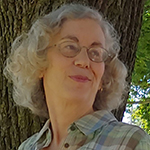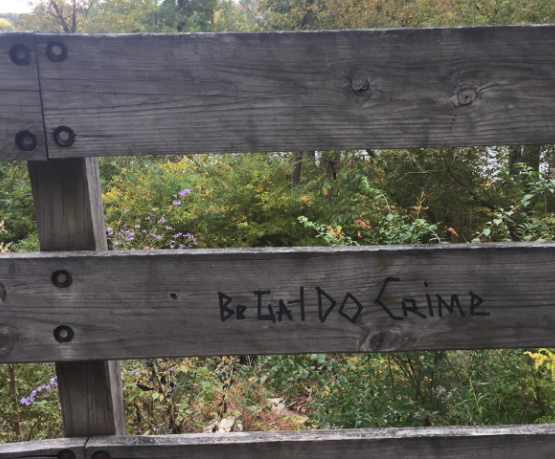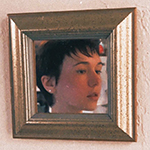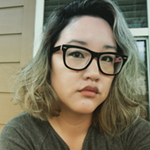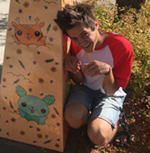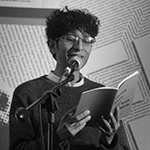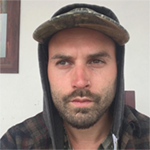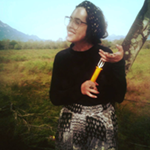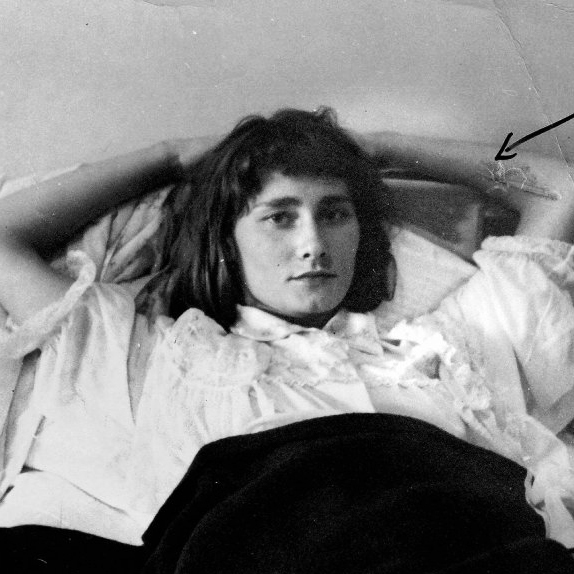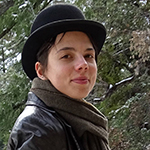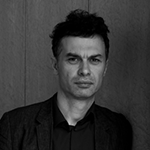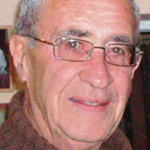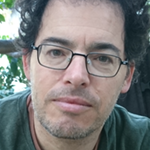A Fair Trade
Ah, Hadassah, you treat me so well.
There are ten thousand, eight hundred and fifty-three parrots in Madrid. They came here because immigration was not properly regulated at the North African border. It is said that they have taken the majority of manufacturing jobs and deflowered the women. In response, the Spanish government has built a wall around Ceuta and Melilla. The parrot migration has ceased since then, as birds are known to respect land boundaries.
Essay questions:
1. Using the historical documents provided, please outline a system of inquisition best suited to differentiate parrots from non-parrots.
2. Name three other events/invasive species/problems (not including the parrots) that necessitate the beginnings of a second Reconquista. Use descriptive language in your answer.
3. If the sterilization/mass annihilation of the parrots is to come in effect as proposed by the current Spanish government, there is a distinct possibility that one of the parrots may be a master poet of the Spanish language. Draft an apology memo to the public, being sure to highlight his or her achievements in a non-political manner.
{The answers have faded away; only the shadow of a few pencil scratches remains.}
I clutched the yellowing papers to my chest as I entered her room. I have seen her every weekend for years now. She lived at the end of every Metro line in every city, that special stop after every single passenger is gone, behind a door made from multi-colored glass on that empty platform. You won’t be able to find it if you’re not in the know—just rats and old plastic bags. You need to be referred. That’s how everybody meets her. I’d be happy to refer you too, if you like.
But I wouldn’t recommend it.
Hadassah was a never changing being. In every session we had together, she sat silently, veiled in the quiet shadows, with only her long grey-green beak protruding from the darkness. At regular intervals it opened, slowly, almost imperceptibly. I had always assumed it was a mask, but now I’m not so sure. I sat across from her, on a chair made from a thousand insect legs. The beak nodded, and I told a story about myself. It always began like this.
{There is a photograph of a young couple, smiling on their wedding day. They, two women, are standing on a white veranda, and the rain is pouring down behind them in lucky droplets. In the background, vultures have begun to feast on the guests behind them, leaving a line of sinew and entrails around the newlyweds. According to a small news clipping stapled to the picture, marriage lasted for thirty-three days, before it came to light that they were both already married to each other’s fathers. On the back is a note written in red pen, detailing the above story, and also the words:}
Lot’s Daughters, before honeymoon. Boston.
When I first started going, I thought it would be hard to tell stories without any prompt, without any reason. My even voice shook when I first started talking about myself. It wasn’t even complicated stuff; just the usual—my name, parents’ names, place of birth, number of known siblings, medical history—all that common knowledge. I dipped a little bit into my childhood—focusing on the traumas, of course. I considered it all banal, but apparently it was enough—from somewhere within her unknowable cloak, she gave me that photograph. A story for a story. A fair trade.
After I left, the door disappeared behind me. I somehow knew I was expected next week.
FORECAST: 57 degrees is the high, with light showers expected in the evening. Thirty-five people will die in the city today, including Ms. Elena Castor, who will be beaten to death on the corner of Oak and Elm Streets at 11:56 PM. At least twenty people will witness her death-in-progress and make no attempts to help her. If you do not have other engagements, it would therefore be prudent to attend so that the required quota is reached.
{A black-and-white picture of the woman is included. She looks happy.}
I constantly studied that wedding photograph in my free time, to the point that I even accidentally tore its corner from overuse. I couldn’t find any trace of the women in the photograph, or any record of any such wedding in any Boston, Massachusetts or otherwise. After receiving a few more, I came to conclusion that they were all some sort of experimental art project—complete fiction. Much later, I would realize that they were all true, as every story that has been told is somehow true; if not here, then in another world, another lifetime, or another existence of essence.
In the next session, I told her another story, this time about a few fears and anxieties. Nothing too special—I wasn’t yet comfortable giving everything away—but I told her that I was afraid of shaking other people’s hands because their skin felt so coarse against mine. The beak nodded and nodded, even during my retelling of a nightmare I once had about falling in love with an ocean sunfish, who ended up being a poor bedmate. “Did I do well?” I suddenly asked. She responded only by giving me another story and motioned for me to leave.
{This story is a large full-color poster. A glossy picture of two men staring deeply into each other’s eyes takes up the majority of the picture. Their left hands are intertwined; their green-and-brown shirts slightly askew. Their bronze skin twinkles in the desert sunset. Behind them, Iraqi insurgents are being shot by a mounted machine gun. Their bloodstained turbans and beards look almost comical. A drone is frozen in flight overhead; its rotary blades still exude movement in the stillness. In its windy wake, the American flag flaps proudly.
At the bottom of the poster are several words in large block letters.}
MAKE LOVE AND WAR
U.S. ARMY
ENLIST TODAY
I kept every story in a cabinet under my desk. Every night, I checked to make sure each and every one was in pristine condition. Realizing how precious they were, I memorized every story, but I began to mix them up with reality in my head. I confused friends when I talked about last year’s moon landing or the political viability of lizard men in American politics. But they shrugged it off; we were all artists, and they probably just assumed I was on one of those traditional artists’ drugs, like weed, or LSD, or unemployment.
I tried to go more than once a week. I asked Hadassah if we could meet more frequently, but unsurprisingly, my question received no response, only that little paper story about the Army.
I resolved simply to ride the line a few days before my scheduled appointment, but when I arrived, I could not find the door in the dusty dark subway stop. I tried again, riding a different train to the end of a different line, and found much the same. I called out her name three times, “Hadassah, Hadassah, Hadassah,” but it might as well have been the crowing of a rooster. I shamefully took the train all the way back, every stop a reminder of my impatience and my failure.
From that experience, I sank into a deep depression for several days. Although I knew that I would see her again soon, being unable to have her whenever I wanted made me feel so hopeless and so powerless. I refused all food, save for a bit of lentil soup in the evenings, and called in sick to work every day. I must have sounded so terrible on the phone, because nobody questioned it—they always sounded so concerned when they told me to “Get well soon!”
Lying in bed, doing nothing but rereading the stories, I dreaded the day of my appointment. What if I was too unwell to tell a story about myself? What would Hadassah say? Would she not give me a story at all? I thought about not going back. In fact, I decided, I should never go back at all. It was doing me harm, ruining my social life, making me worry and obsess, and befuddling my brain. Better to be done with the whole affair.
Yet on the day itself, I rose from under the covers and found myself on the subway again, sweating in the heat as a man played a pop song on the bongos for money. And when I was face to beak with her again, all my troubles and my stories just started spilling out. In the end, my worries were unfounded; she gave me a story before I left.
DOCTOR’S NOTE
To Whom It May Concern:
I am writing to inform you that Ms. Tan should be excused from work today. She is feeling quite unwell for a variety of personal and embarrassing reasons, such as armpit boils and excessive flatulence, and it would be prudent to not bring them up when she returns to the office tomorrow. Furthermore, she has informed me not to disclose that she has been suffering from bouts of depression due to self-image problems and the isolation of an immigrant lifestyle; therefore, loudly screeching ‘Chino, Chino’ as she walks into the office every morning is unhelpful for her condition, especially since she is Indonesian—I would instead recommend ‘Gook,’ even if it more usually refers to Vietnamese and Korean people.
I have included my personal number at the bottom of the letter if you need to urgently contact me for any more of her confidential medical history.
Sincerely yours,
{The signature is illegible}
After about six months of seeing Hadassah, it somehow got out that I was one of hers. I’m not sure who told on me. It could have been the friend who referred me, or perhaps somebody saw me on the train, or perhaps, although unlikely, Hadassah herself.
My friends were the first to learn. Over a game of cards in a run-down gay bar somewhere in the Village, one turned to me and said, “How’s the old bird?”
“Who?” I replied, forcing down a draft of beer I only ordered due to peer pressure.
“Hadassah, of course. I’ve heard you’ve been seeing her.”
I opened my mouth to reply but he did not give me a chance.
“Oh, don’t worry, we won’t think any less of you. We’ll treat you exactly the same as we always did.”
After that night, they stopped returning my texts. I never saw them again.
I started getting more and more time off from work without asking for it. At first, I liked it—who wouldn’t, working as a pencil pusher? But soon it started to grow excessive. I became restless and bored.
“Oh no, you don’t need to come in today,” my supervisor said on the phone. “Really, there’s not much work. Stay at home! You need the rest! You have a big meeting with her coming up!”
I came in anyway. When I arrived, I found that my possessions had been thrown into the trash. Somebody I didn’t recognize was sitting at my desk, typing away at my ancient computer.
“Don’t worry,” my boss laughed, “we’re just doing a bit of reshuffling to improve team synergy. You can work from here in the meantime.” She was pointing at the broom closet.
I raged when I saw Hadassah again. I shouted and shouted at her, over and over, at her placid, rostrate face. Pacing around the room, I called her a traitor and a life-ruiner. She did not move until I had finished my rant, upon which she gave me another document and bid me goodbye.
On the subway home my head was heavy with tears.
The next day, I tried to find somebody else to blame. My friend, the one who introduced me to Hadassah, picked up his phone on the fourth call. He refused to discuss her, no matter how much I asked. Eventually, I tried a new approach. “Do you know anyone else who has met her? Somebody must have introduced you to her,” I asked, my voice ragged and hoarse.
“I try not to associate with others,” he replied. “I like to keep it a secret. I thought you would too.”
“I have to talk to somebody else about it. I want to feel normal again,” I said, again and again, until he relented.
“I was introduced to her by a group that meets behind the Reservoir. They are all her customers, or patients, or whatever you’d like to call it.” He paused before continuing. “I have to say, I’m very disappointed in you. I thought there was something special about you, but I suppose not.” He hung up the phone before I could say goodbye.
They met just before midnight, like all secret societies. I could easily spot them from the general homeless and drunkard population due to the bird masks and black cloaks they wore. The clothing was a cheap imitation of her majesty, but I respected the attempt. They sat around a small tree, without making any noise. At first, I thought they were playing some sort of strange schoolyard hand game—but as I approached, I realized they were exchanging tiny pieces of paper.
I sat down in the middle of the group. They did not stop me. One handed me a story, wrinkled and worn. I unfolded it:
{It was an X-ray, depicting the mouth. In yellow pen, someone had circled the various oddities. Notes in hurried handwriting appear on the back.}
● The subject came complaining of tooth pain.
● Upon examination, it became clear that the subject appears to have only molars. Not only that, the subject also has three rows of those molars, like a herbivorous shark.
● Every tooth has had a mark carved deeply onto the enamel. Each row had a single different mark, repeated on every tooth in that row. Being doctors of a certain stock, we quickly identified them as three Hebrew letters. From back to front, the symbols appear to be as follows: אמת.
● Even more strangely, the subject flosses regularly.
● All these signs point to intervention of the Divine, and that this was His messenger.
● We treated him with appropriate reverence, by plunging the drill into his head while he was sedated with nitrous oxide. As expected, his body collapsed into mud postmortem. Not a single tooth could be saved for future study.
● I have advised all my colleagues to avoid plane travel in the near future and to vigilantly screen for any possible illnesses, due to the high likelihood of vengeance.
The masked man who gave me the story looked at me expectantly, his beak glimmering in the city night. “I don’t have a story to give back to you,” I apologized. “I’ve left them all at home.” Of course, I would never have given them anything anyway—the stories were too precious to be wasted on these madmen.
The exchanges all around me suddenly stopped. Carefully and gingerly, they folded away each piece of paper before slowly standing up to surround me.
The one who gave me the dentist story attacked me first. His gnarled hands, calloused and covered with paper cuts, clawed at my cheeks and eyes with talon-like nails. The rest descended soon after, into a whirling melee of grey masks and red blood. I do not consider myself particularly strong, but I easily overpowered them; these Hadassah worshippers were weak, frail things, whose constitution had faded due to a drifting mind. With a grunt and a heft, I was able to push a great number of them off me and twist myself out from the brawl. The scuffle continued even in my absence. Senselessly, I watched them fight for a few minutes longer. Not a single one cried out in pain or shouted in anger, even as their heads were smashed in by steel-toed kicks.
I quickly turned and left. I do not revel in carnage. Most of all, I was afraid of becoming like them. Perhaps it was already too late. The normal people had already acknowledged me as Hadassah’s own. I knew now more than ever I had to put a stop to it.
The Journal of Anthropological ’Pataphyiscs
The Temporal Teleology of Diagnosis: A Survey by O’Nassis, A., Elea, Z., et al.
Abstract: Through the careful survey of more than thirty-seven medical archives and thirteen weeks of field research, the authors have discovered that doctoral diagnosis (DD), if given by an accredited medical physician (AMP), can in fact extend past present temporal boundaries into both the past and future (P&F). Indeed, not only did perception of the subject by others drastically change for the negative after DD, so did their memories, retroactively making the subject always sick. Furthermore, DD affected the physical body of the subject in the P&F, even if s/he was not sick to begin with. In other words, it was the DD by the AMP that causes illness, not any pathogen. In a case study with eighteen participants, nine healthy (proven so through rigorously screening) and nine ridden with various stages of cancer, all nine healthy participants immediately tested positive for cancer after receiving a DD of lung cancer from an AMP. In one particular case, one healthy patient immediately collapsed and subsequently died upon hearing the DD; later autopsies found that he had died from a stage four disease, even though he had been given a clean bill of health the day prior. The authors then conclude that AMPs use their DD with discretion, especially on the general public; politicians and personal rivals are thus most suitable targets.
On my next designated appointment, I brought every single story Hadassah has ever given me. I vowed to throw them all at her feet. What then, Hadassah? What will you do when I give you nothing more?
When I arrived, she sat there, motionless as always, save for a slowly bobbing beak. I tossed the stories to the ground. I screamed. It was like losing myself.
The papers settled.
Almost immediately, I fell to my knees, nearly sobbing, as I scrounged on the ground, trying to collect every paper that I had dropped. How could I have ever let them go? They were so precious to me. Thankfully, I was able to save every one without issue—only a few bits of wear and tear, here and there. I ran my fingers over every page, counting them over and over.
I felt the cold touch of leather on my cheek. I looked up to see Hadassah’s long face right in front of me; her gloved hands ran down my neck to my chest. She said nothing, as always, but the message was already clear. I am ill and cannot be saved. There is no magic cure. Hadassah is here to stay. I will always be marked as one of her brood, even if I try to hide it—people will know and judge and hate me for it. Her stories will constantly flutter around me like the wings of a great bird.
And yet, despite it all, I realized I could still breathe and smile.
Hadassah pulled back into the darkness. The moment was gone forever. We went back to routine. I told her my story, gained one in return, and left.
Somewhere else, maybe in the reflection of foggy glass on a subway pulling into the station, Hadassah’s stories played out to their conclusion. My ancestors were gassed in concentration camps, my other ancestors were colonized, the love was found and lost and found again for good, and I was free to live without the shackles of diagnosis, but here, on the other side, I was still the same as I have always been.
Through the heavy mask it was hard to read these stories, but I managed. I had to. It’s only fair—she is my keeper and treats me so well.
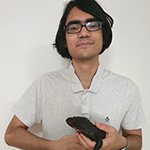
Coda Danu-Asmara is a Pushcart nominated writer of many identities, including queer, Jewish, Indonesian, and autistic. His work has appeared in Thrice Magazine, The Write Launch, Punt Volat, and elsewhere. He was born in New York City but currently lives in Sydney, Australia. His lizard’s name is Siddhartha.

 BACK TO ISSUE
BACK TO ISSUE